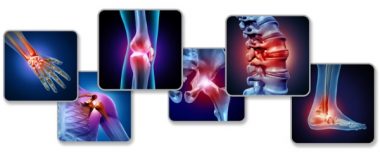In an analysis of more than 50 years of health data, it was found that women who were overweight or obese at age 14 or 31 had a higher risk of suffering an ischemic (blood clot-caused) stroke before the age of 55. This is according to a study published in Stroke, the scientific journal of the American Stroke Association, a division of the American Heart Association. According to the American Heart Association, an ischemic stroke occurs when a blood vessel that supplies blood to the brain becomes blocked. Ischemic stroke is the most common form of stroke and accounts for about 87% of all strokes.
How Weight and Stroke Risk are Linked
The study conducted in Finland suggests that women who were overweight at the age of 14 were at a later risk of a clot-related stroke, even though they had lost weight by the age of 31. Women who were overweight at the age of 31 also had an increased risk of a later clot-related stroke, even though they were of normal weight at the age of 14. An increased risk of clot-related stroke was not found in men who were overweight at age 14 or 31. However, men who weighed too much at the age of 31 had a higher risk of bleeding-related stroke than women who were overweight at the age of 31.
According to the study’s lead author, Ursula Mikkola, B.M., a researcher in the Population Health Research Unit at the University of Oulu in Finland, these findings suggest that obesity can have long-term effects on health, even if the excess weight is only temporary. Health professionals should pay attention to overweight and obesity in young people and work with them to develop healthier eating habits and physical activity. However, conversations with adolescents and young adults about weight should be non-judgmental and non-stigmatizing.
To analyze the relationship between weight at different ages and the risk of stroke before the age of 55, the researchers evaluated long-term data from participants in the Northern Finland 1966 birth cohort. The Northern Finland Study Group was established to investigate factors associated with preterm birth and infant mortality. In 1966, more than 12,000 pregnant women from two northern provinces of Finland were included in the study. More than 10,000 offspring, who are now over 50 years old, have since been followed and their health data has been used in several research studies.
A 167% Increased Risk of Stroke in Women Who are Overweight
For this analysis, the researchers used body mass index (BMI), a ratio of weight to height, to examine whether those who were overweight or obese at age 14 or 31 had a different risk of early stroke than their peers who were not overweight or obese at age 14 or 31. About one in 20 participants suffered a stroke caused by a blood clot, or transient ischemic attack (TIA or mini-stroke), during the average follow-up of nearly 39 years after the study at age 14 and nearly 23 years after the study at age 31. The analysis of the current study ended in 2020.
When assessing the impact of obesity on stroke risk, the researchers found that women who were overweight at age 14 had an 87% higher risk of having a stroke or mini-stroke caused by a blood clot, while women who were overweight at age 31 had a 167% higher risk of having a stroke than women of adequate weight. Similar correlations were not found in men. Women with obesity at age 31 had an almost 3 ½-fold increased risk of a bleeding stroke, and obese men at age 31 had a more than 5 ½-fold increased risk of a bleeding stroke. BMI measurements earlier in childhood or later in adulthood did not appear to influence the results.
It is important to note that weight is not the only health factor that affects stroke risk. Many other factors influence this risk and should be considered in addition to weight. The researchers do not know why the association of increased risk of stroke caused by a blood clot has not been found in men. They are currently investigating the possible causes and other risk factors in more detail. The analysis was conducted from 1980 to 2020. The participants in the analysis included 10,491 people aged 50 years (49% women). BMI was measured at age 14 or 31, or both.
Limitations of the study include that it is an analysis of health data (an observational study) and therefore no cause-and-effect relationship between weight and early stroke risk can be established. The participants were all born in Finland, so the results may not be transferable to people in other countries. In addition, stroke at a young age is rare, so the difference of only a few strokes could have an outsized impact on the risk estimates. Furthermore, according to the researchers, BMI is based solely on a person’s height and weight. A high BMI can therefore be misleading in defining obesity, especially in muscular people who have little fat even though they weigh more.






